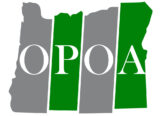

Samantha Bayer
City of Portland Denies Permit for Removal of Tree That Later Crushes Family’s Home
Last week on the blog, we talked about whether a homeowner is liable for damages if their tree falls into their neighbor’s yard. This was a scenario that many homeowners were facing after historic ice-storms rattled most of the Metro area.
This week, we’re highlighting a far more frightening scenario – what happens if you try to remove your tree before a storm, the government won’t let you, and the tree falls and destroys your house and nearly kills your family? Do you have to pay for the damage and clean up costs? If you’re the City of Portland, your answer to the homeowner is apparently – “Of course you do.”
Family faces tree-code nightmare.
This is the exact situation that happened to a Portland-area family this month. In early January, Sarah and Joel Bond’s Southwest Portland home was crushed by a 150-foot Douglas fir. The scene described to the Willamette Week is horrific:
Joel Bond found their daughter JoJo, covered in dust from the tree crashing the roof, in their bedroom. She was unhurt. They found one of their two cats, Max, hiding. The second cat, Binx, had been in the bedroom closet when the tree fell, and the closet, crushed by the tree, had fallen through the floor. The mangled closet now lay in the living room.
This terrifying situation was the direct result of our “friends” at the City of Portland. According to the WW, back in 2021, the Bonds submitted a permit to remove two looming firs on their property. The Bonds were afraid that one or both of the trees could fall and harm their home and family.
The City of Portland denied their permit to remove the trees on the grounds that:
Removal will significantly affect neighborhood character, based on the tree’s attributes, visibility of the tree to the public, or past removals of trees in the area,” the city’s letter read. “Tree appears healthy and not dead, dying or dangerous at the time of inspection; tree is [more than 10 feet] from an attached structure.
Now, I’m not a mathematician, but I’m fairly certain that if a tree is 150ft tall, the tree being 10ft away from the house is not an adequate distance to prevent any harm. I’m also not a City Forester, but I’m confident that if a young family came to me afraid that a giant tree was going to fall on their house, I wouldn’t deny a permit based on “neighborhood character,” the “tree’s attributes” or “visibility of the tree to the public.” It sounds like the City cares more about being one giant HOA, instead of protecting families.
Oh, but that’s not all. As one last giant kick to the gut, the City is now allegedly requiring the Bond family to apply for and pay for a retroactive removal permit for the tree that fell, and the Bonds will have to plant a new tree in its place. At this time, it remains unclear whether the City will face liability for the City Forester’s determination that the trees were not dangerous, why the City Forester made that decision at all, or whether the Bonds will be able to recover costs from the City.
Trees are big business for local governments.
The City of Portland’s tree-code is notoriously devoid of reason or frankly, humanity. In our opinion, the code skews so far towards tree preservation, it places trees over the life and safety of City residents. Sadly, the City of Portland’s code isn’t unique, but it’s one of the worst, and for those of us who have been lobbying for tree code reform in recent years, the Bonds story doesn’t come as a surprise.
Beyond obvious health and safety risks to residents, local governments’ excessively high fees for tree removal are a significant concern for homebuilders who are trying to build affordable housing. For example, if a builder is charged $450 per inch of tree being removed, and you have to remove multiple trees, those costs stack up fast. When you combine those with all the other fees a City charges for construction, it makes it extremely difficult to build affordable housing. These costs don’t even take into consideration the costs residents have to pay to the City to maintain trees, or the costs a resident must pay to remove a tree – even one that falls on their house.
It makes you wonder; how much money does a city with an “urban forestry” department make on charging tree fees?
But all that ignores the most fundamental question of all – if a property owner wants to cut a tree on their own property, why is it anyone’s business? We understand the need to make sure that the tree is removed safely to protect the owner and the surrounding neighbors, but it seems (at least in Portland’s case) most tree ordinances have nothing to do with public safety at all.
Tree code reform blocked by government and special interest groups.
Unfortunately, recent efforts to have a meaningful conversation about statewide tree code reform have been shut down by cities and environmental groups. In the meantime, families like the Bonds are left to pick up the pieces of their lives scattered amongst the pine needles.
At OPOA, we will continue to join our partners in the residential construction industry to advocate for common sense tree reform, and seek to hold the government accountable when it’s decisions cause harm to Oregon families and their property.
The opinions expressed in this post are those of the author and do not represent the opinions or positions of any party represented by the OPOA Legal Center on any particular matter.

Pingback: OPOA Issues Public Service Announcement - Oregon Property Owners Association